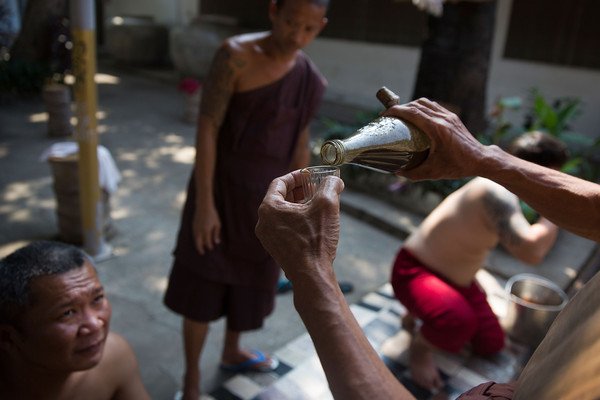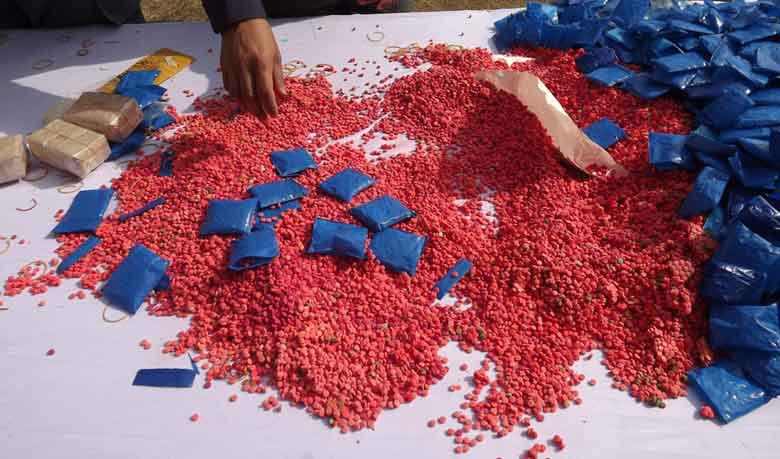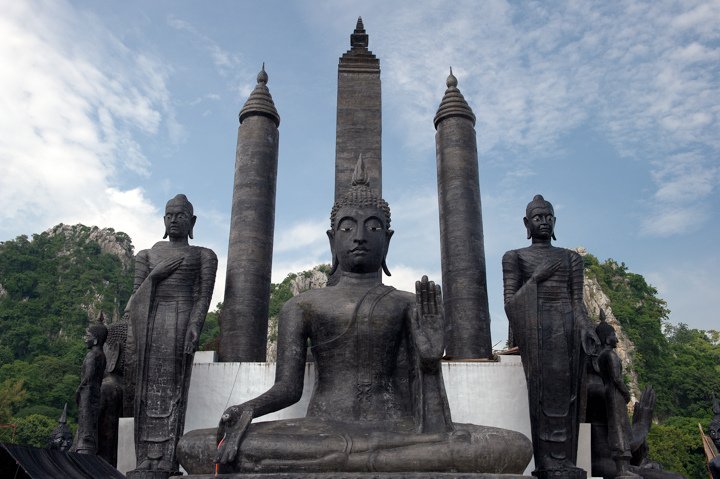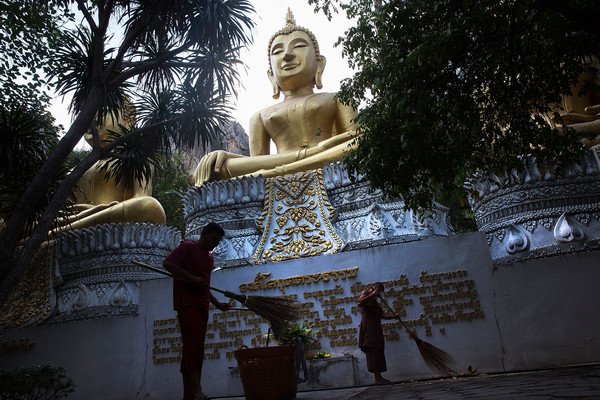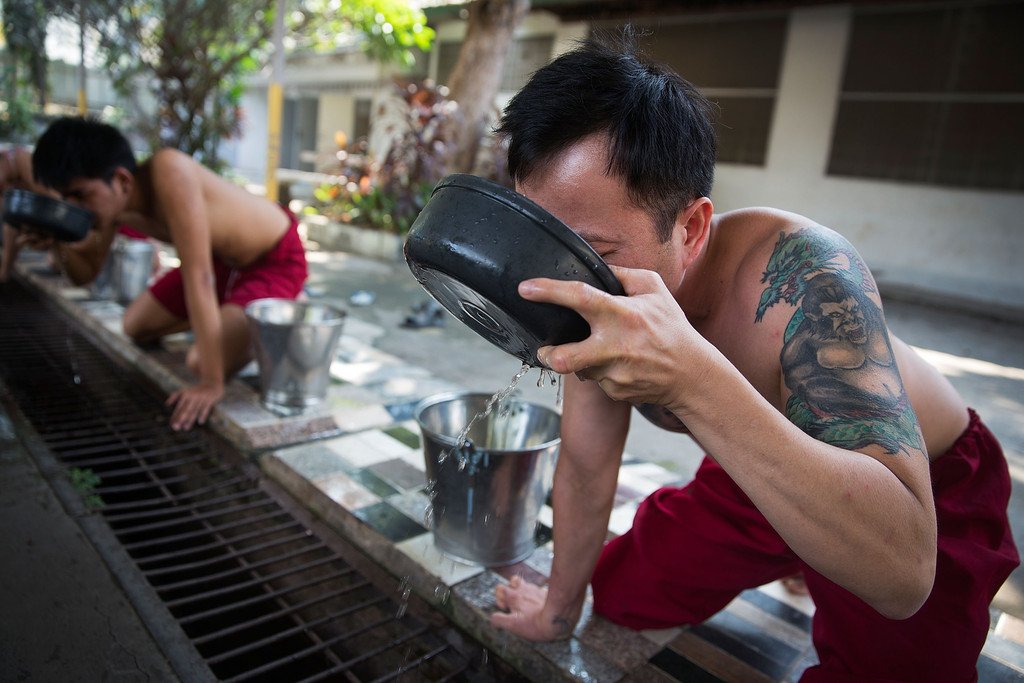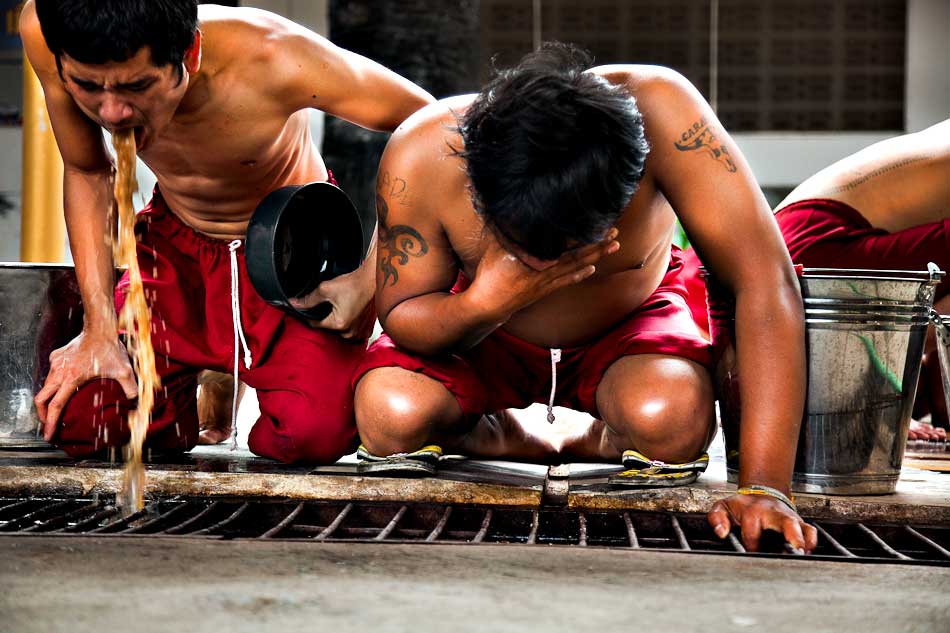Thailand is in the midst of a drug epidemic. Yaba, derived from methamphetamine, has surpassed heroin as the country’s most dangerous psychoactive enemy number one. “In Thai, ‘Yaba’ means ‘crazy pill’, or even just ‘madness,’” says Viroj Wirachi, director of Thailand’s National Institute on Drug Treatment.
Speaking to a reporter for VICE News, Wirachi says Yaba is a stimulant drug composed primarily of methamphetamine, but each tablet also contains a sizable dose of caffeine. The combination was developed by Nazi scientists during World War II, as an attempt to give Germany’s soldiers the upper hand—after all, who can defeat an enemy that doesn’t need sleep?
The drug is either taken orally or, in the case of heavy users, smoked. “It was kind of like doing coke without the ‘raring to go’ feeling,” writes Trev, posting anonymously about trying Yaba on Erowid.com, “I felt good about myself and had the feeling of well-being and control, also talkative and alert.” Addicts describe the first high as intense, but warn it only gets more fleeting from there. Brain damage has been linked to prolonged abuse of methamphetamine, along with being one of the hardest addiction cycles to break.

In response to the increased use of yaba and similar stimulants, Thailand has declared a war on drugs that has resulted in over 3,000 deaths so far. According to VICE News, nearly half of those killed had no affiliation to the drug trade.
There have been a few good results from the country’s aggressive anti-drug policies; the number of drugs being smuggled into the country from its neighboring borders has been cut in half. But many in Thailand fear the cycle of violence will only escalate with time. In addition, an estimated eight million addicts remain in Thailand.
On the civilian side, health clinics and outpatient rehab centers do their best to rehabilitate drug users. The results of treatment are, of course, varied; but one drug rehab program is boasting a 70% success rate, and the method used to achieve such a high number is quite unorthodox: group vomiting.
The program is run out of the Wat Tham Krabok Monastery, located on the outskirts of Bangkok. It requires new members to undergo group vomiting sessions in order to cleanse themselves of their addictions. “It’s a means of purging toxins from the body,” says one monk. “Quitting drugs is about mind over matter,” says another, “it’s about your heart and emotions.”
A typical day at Tham Krabok begins around 4:30am, when patients wake up and thoroughly clean the temple. Around 8:00am, they recite the national anthem and drink tea. After that, it’s a relaxing trip to the sauna.
Then, as monks sing and pound on drums, each patient is given a special herbal “medicine” which rapidly induces vomiting when consumed with water.
“There are four kinds of herbs [used in the medicine],” a monk told a reporter for VICE News. “Morning glory, cogon grass, lemongrass, and castor leaves.” The herbs are also used to make steam, which fills the sauna.
During the vomiting sessions, many of the men aid their expulsion by forcing fingers down their throats. They say if they don’t vomit, the herbal mixture will make them feel sick all day. “It tastes really bitter, it’s like torture,” said one patient. “But I feel better as soon as I vomit. Yesterday I didn’t puke everything out. I went to lie down after, and I felt like I was dying. I had to puke again to feel normal.”
The program, however unusual, seems to be working. “Tham Krabok temple was founded in 1957,” said one of the monastery’s monks. “Our rehabilitation program began in 1959, so we’ve been treating drug addicts for over fifty years now.” In addition to treating the recent surge of yaba addicts, Tham Krabok is well-known for treating heroin and opium addiction. It continues to boast a high success rate, and apparently has few patients return for further treatment.
